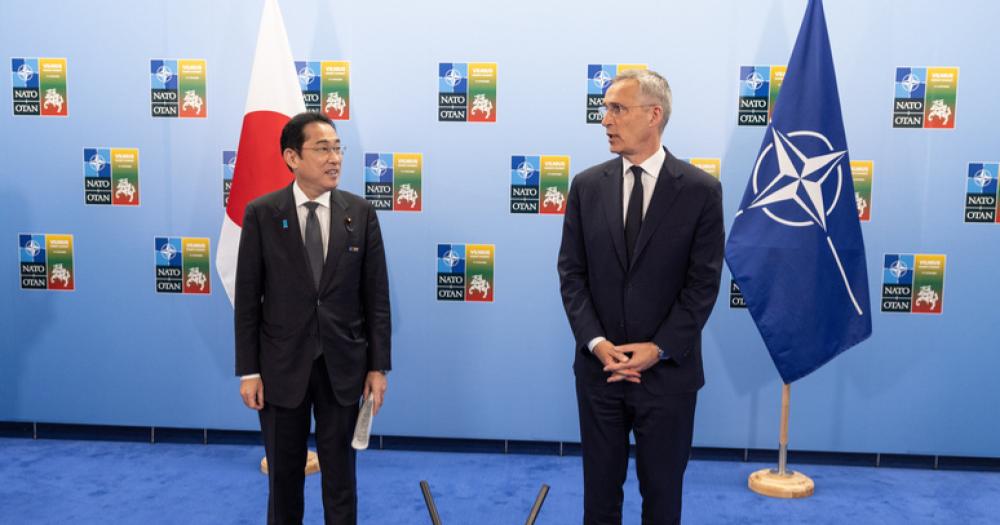The proposal to establish a North Atlantic Treaty Organisation (NATO) liaison office in Tokyo, Japan, was removed from the final joint communique of the annual alliance summit, Nikkei reported.
Plans to open a NATO liaison office in Tokyo were in the talks for weeks leading up to the two-day summit. While the proposal survived several rounds of discussions, it was ultimately deleted in the last round of talks.
Conversations about the ongoing war in Ukraine, China and Taiwan, as well as the pending membership of Sweden and Ukraine, were among the issues discussed at the summit.
General consensus for deeper engagement in Indo-Pacific
In attendance were the NATO member countries and leaders from the alliance's formal partner countries in the
While there was a general consensus that a deeper engagement in the Indo-Pacific was needed, especially in transnational matters such as cybersecurity, there was still a fraction among the allies over NATO's expansion in the region.
NATO Secretary General Jens Stoltenberg spearheaded the proposal for the Tokyo office after he visited the country in January and stated that "no NATO partner is closer or more capable than Japan".
In a move that signifies increasing involvement, Japan's Prime Minister Fumio Kishida said the country will be establishing a permanent representative office for NATO sometime this year.
France opposes NATO office in Japan
France had openly opposed the U.S.-led alliance's plan to open an office in Tokyo, especially in times of rising tensions between China and the West.
“NATO [stands for] north Atlantic, and both article V and article VI [in its statutes] clearly limit the scope to north Atlantic,” a French official who asked not to be named told The Guardian.
Setting up a NATO office in the Indo-Pacific region might also send the wrong signal to Southeast Asian countries who would prefer to avoid choosing sides. They might also see it as a "challenge to Asean centrality," said Thitinan Pongsudhirak, a professor of political science at Chulalongkorn University in Bangkok.
Introducing the NATO session, Stoltenberg emphasised that anything that happens in the Indo-Pacific matters to the Euro-Atlantic, echoing what he said to South Korean President Yoon Suk Yeol at the summit on Tuesday as they established new bilateral cooperation.
"We value the partnership with you because security is not regional, security is global. What happens in the Indo-Pacific matters for Europe, and what happens in Europe matters for the Indo-Pacific," Stoltenberg said to Yoon.
Increased deployment in the region
While NATO will not be establishing a liaison in Japan in the foreseeable future, Japan and other IP4 countries have been boosting relationships with individual NATO members such as Britain, Germany, France, and Italy, all of which have increased deployment in the region, The Japan Times reported.
Their increasing presence in the region has raised concerns in Pyongyang, Moscow, and Beijing, who repeatedly warned that this might fuel regional tensions and increase the likelihood of conflict.
Read up on our NATO Summit coverage here:
Top image via NATO.
If you like what you read, follow us on Facebook, Instagram, Twitter and Telegram to get the latest updates.



